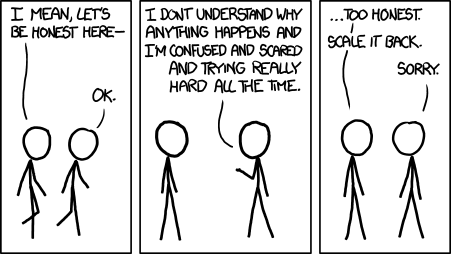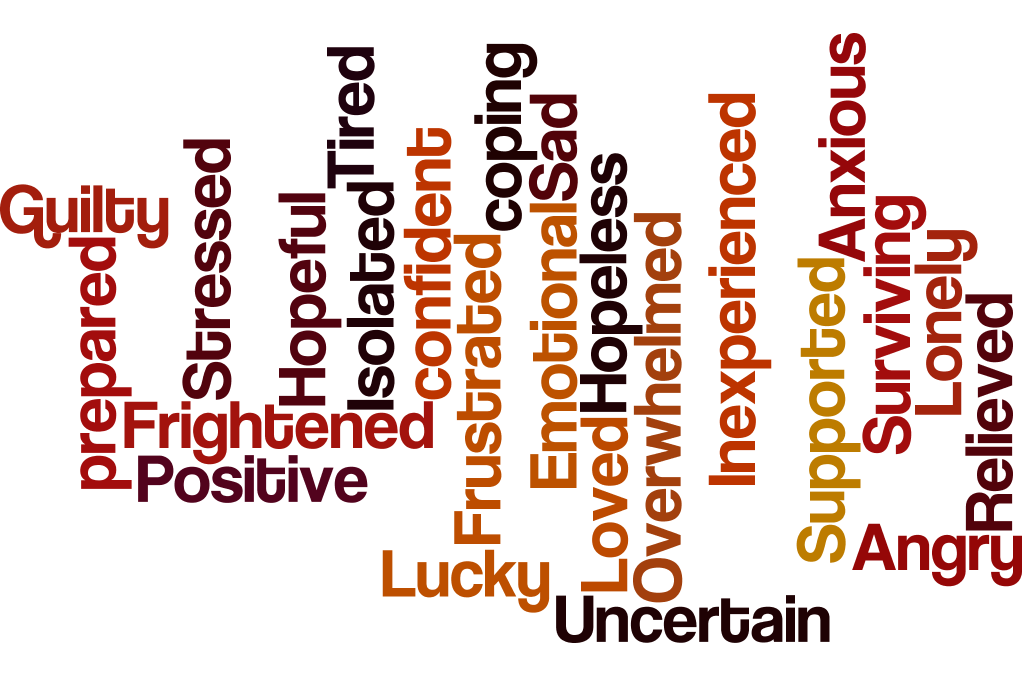Bradley Gram-Hansen
Senior Applied Scientist Apple !
Doctorate from the University of Oxford in AI & Machine Learning.
The PhD Life

Problems
As an academic, I would say that I do love problems; easy ones, hard ones and those that seem damn right impossible. But there are times when things in life can get a little too much. I have seen an increase in those becoming depressed, disillusioned and struggling to deal with the general pressures of life and work. This is not just in academia; this is across a range of industries. I too have been through that cycle, and I thought that I would give some advice based on my own experiences in academia on how I navigated my way through the hard times and how I deal with them as they arise in the present.
Fears and Emotions
We all have them, and in many ways, it is what makes us human. They are not bad things, but sometimes they can have exaggerated effects on us, and it can be difficult to control those effects. #EmotionsAreComplicated

Pressure
The need to publish is always there and writing a paper, especially if it is your first, is hard. You have to find and define the problem (your supervisor will probably help with this) and generate experiments that hopefully back your hypothesis. Then there are the associated time pressures for getting everything done before the next deadline. Finally, there is the sell, convincing the reviewers and others that your research is worthy; this can feel like an uphill battle sometimes. You may also have to deal with a problematic supervisor, it can happen, and I had an experience with one such supervisor during the first year of my PhD. Thankfully, they are no longer at the university and no longer supervise me. #ThisIsn'tBoylesLaw
Worry
If I fail, what happens? Am I good enough? Do I have the ability to succeed? Can I solve this problem? Is what I am doing good enough?#SoManyDoubts
Life
Then there are personal events. Unfortunately, these can strike at any moment, and it is tough to prepare for them. Deaths, relationships, general fears and anxieties. When things are going well, it can feel as though you are gliding through the bright summer skies, when they degrade, well, that is another story. Life, in addition to work pressures, can create some tricky situations, I've had my fair share, but there are ways for us to mitigate some of the more dire consequences of those situations, I will discuss these below. #LifeIsLikeABoxOfChocolates
Protecting You
Okay, we've gone through the fears and emotions that you may, and most definitely will feel during a PhD. It can all seem a little gloomy, but how do we prepare ourselves, and how do we get back in control of our emotions, so that we can dictate the situation and not them? Because a PhD and research, in general, is a great thing to do, especially when you are the one in control.
Controlling your Emotions and Fears
It is weird, the majority of pressures that you feel, as a researcher, are all, to some degree, self-inflicted. I am the one that wants things to be perfect, I am the one who places the pressure on myself to perform, and I am the one who creates many of these fabricated constructs. Society can indeed be blamed for producing some of these pressures, but I am the one who chooses to inflict them upon myself, both consciously and sub-consciously. Of course, we have deadlines, external demands from others and financial burdens, but, if we think about these sensibly, we can mitigate much of the stresses that are associated with them because we construct them, and so we have control over them.#YouHaveThePower!
One exercise I have found incredibly useful over the years is the following; on a piece of paper construct three columns. In the first column, write down the current stresses in your life. In the middle column, write down what is the worst thing that can happen if that stress is to continue, or if it comes to fruition. Then, in the final column, reason how you will mitigate it to the best of your ability, or reduce the impact of the given stresses.

An example might be as followed.
In column one: I keep procrastinating with my work because I'm scared that I can't accomplish the task I have to do.
In column two: The worst thing that can happen is that you continue to do nothing, fail at your given project and increase self-doubt in your ability.
In column three: To mitigate this; first, I should talk with my supervisor, friends and support network at the given institution. Second, I will work to understand what is causing my doubt, and I will explain this to those that I choose to talk with. Third, To remove those doubts I will start on the simple problem, the worst thing that can happen if I start is that I won't finish, but at least I will always be learning because through my failures I will understand what I need to do to succeed.
Why should you do this? Well, first of all, writing things down stops them from being stuck in your head, reducing additional pressure and time from continually thinking about those stresses. Second, in realising those fears we can accept that they are there, we have an understanding with ourselves. Finally, in writing down how to reduce, or mitigate the impacts of those stresses, we are telling ourselves how we are going to prepare for them, meaning that we now have a more visible objective. This process can be viewed as a form of Stoicism.
An important note: If you feel as though you can no longer control your actions and emotions in a given situation, immediately remove yourself from it. This will stop you from a) committing acts that you will later regret and b) put you back in control. I recently had a number of very emotional issues appear almost concurrently, which created a testing environment. The only way to get control of my actions and emotions in this situation was to remove myself entirely from it. It happens to most people in life as the pressures increase, so #Don'tBeAshamed. Be proud that you took action to resolve the situation in a more positive and pro-active way. #BeSensible.
My PhD
I started my PhD full of excitement, anxiety (would I be good enough? Will I fail?) and curiosity. When I choose to do a PhD over going into industry, I knew full well the workload and the sacrifices that would follow. But, I don't think I realised just how much of an emotional roller coaster it was going to be. Long nights, hard days. Good problems, bad problems. A diminishing social life, a temporary deprecation in health and a reduction in patience. I've had it all. Things are much better now. #LearntLessons
While I would still choose to do a PhD despite all that I now know, I do think that it is essential to reflect on the pressures in academia, especially in the field of machine learning and "AI". This is an exciting, fast-moving field, but with that comes a need to develop and publish ideas fast to avoid being beaten to the post, which is both fine and not fine, provided you have the right supervisor/s. On the one hand, a PhD should be about exploring a particular topic in-depth and developing mastery over that. On the other hand, this field can force you to produce small deltas which stop you from exploring quirky questions and instead gives you empirical mastery (insider neural net joke)...
I was unfortunate in that the first supervisor I choose was not the most ideal. I appreciated the way that they would give me drive, but at the same time with that came enormous pressure to publish at conferences at all costs, including sacrificing my intellectual curiosities. In the end, I realised that this had been quite detrimental to my health. My supervisor at the time also conducted some very unprofessional behaviour, but thankfully they are no longer in Oxford or the UK.
In the first year of my PhD, while under the supervision of my previous supervisor, I did close to 20 all-nighters (24 hours plus awake) and in two instances I was awake for 48 hours plus. By no means is this wise, necessary or sensible. Do not do it. Do not brag about it. If anything, warn people not to make the same mistakes. Do not make the same mistake as me. One or two that is part of the job, but minimise them as much as possible. It is not sensible, and your body becomes accustomed to it, which makes it testing to reverse. Unfortunately, your body doesn't just magically avoid all the problems associated with reduced sleep, it will hit you at some point. For me, I noticed that it was after doing sports, it would take me so much longer to recover. While it is true that I do not sleep a lot, I never have, it is essential to give your body what it needs. Listen to it and do as it tells you to do. Thankfully, I now have four fabulous supervisors, who are respectful, knowledgeable and caring. The AIMS program was also incredibly supportive during that time period.#TalkToOthers
Prevention
Okay, so we have talked about how to control those situations when they arise, but how does one mitigate these pressures? My first piece of advice is to explore, put yourself first and own your stuff. Your supervisor is there to guide you, not control you. Yes, you should be interested in problems that your supervisor is interested in, that is why you choose them after all. But, this doesn't mean that you have to sacrifice your intellectual curiosities.
Okay, great, but here is the hard part, at some point, the following happens. You keep trying, nothing works. You keep reading, nothing gets absorbed, and it feels like there is just too much to process. You start getting caught in an infinite well of information that you don't know how to escape.
AHHHHHHHHHHHHHHHHHHHH.
Take a deep breath, step back, take another deep breath and sit down.

First, remember luck == hard work.The more things you try, the more you increase your chances of finding the special sauce.
Second, when you get to this stage, and it is all feeling too much, take a break from doing what you were doing. Go climbing, hiking, running, go out with friends, do some baking or cleaning (avoid ironing at all costs - of course), read that book that you've wanted to read, binge watch that terrible TV show. Do whatever you enjoy doing. Not only does it give you time to reflect and rest, but it also gives you a chance to assess the situation. It gives you a chance to digest what has happened.
Third, talk! We are by construction wired to communicate. Talk to your peers, supervisor and support networks at the given institution. Talking to others and not just inside your head is one of the most useful techniques I have found for actually understanding the issues that are going on in my head! In talking to others, we rationalise, and we find that solutions naturally arise. Because in talking to others, we gain new perspectives. Opening up, especially if you are shy, we all are, can be challenging to do, especially when we have to talk about sensitive things. Personally, regardless of the sensitivity of the topic, the best solution for it has always been to talk. To let out all those stresses and strains, to bring peace to your emotional state. It is so easy to say, but so hard to do. But, I cannot stress enough the importance of talking to others. It always helps to have independent viewpoints on a situation, to prevent yourself from being stuck in one line of thought, #ConfirmationBias.
Fourth, appreciate what you have, be grateful for what you have access to in life, enjoy the world around you and take note of the small things in life, they are easy to forget, but when we think about them, we realise that there are many things in life to be happy about.
In Conclusion…
I hope that the advice presented here will help you to overcome the roadblocks that you will face, whether that is in academia, industry or just life. I hope that for those deciding whether a PhD is for me that this post provides a viewpoint that not everyone will tell you, but that everyone is aware of.
It is always easier to tell people to do things, and magnitudes harder to do those things when you feel as though you are trapped in a situation, but, I assure you if you open up, talk and manage your expectations and fears you can bring balance to your life (and PhD). Despite what the media says, most people are there to be friendly, to support you and help you. Yes, there is the occasional douche bag, I have met a few myself, but most people have your best interests at heart. The more diverse range of people you talk with, the more you will realise this.
I kind of think of this as when I was going through my fussy eating phase, circa 10-13 years old, I would eat the following foods: plain spaghetti, pork chops, cucumber, white bread and variety of fruits. Slowly, I began to try little amounts of different foods (it was a massive step at first), then before I knew it I was eating anything that I could get my hands on unless they were baked beans…
This has been a long post, but I want you to know, a PhD is a great experience but always look after yourself and your mental health. Don't worry about trying to hit the deadline in the present if things aren't going so well; there are always others. Sometimes things need a little more time. It is better to do a job well than to do a job half done. Take the time to reflect on the things that you are doing and always try to put things in perspective, if you can. You will probably find that things are much better than you had initially thought. Most importantly, enjoy the things that you do and the things that you have, you only live once, and you can NEVER repurchase time, regardless of how much money you have, or make.
And remember:A big thank you to Adam Golinskí who took the time to read the post and provide me with valuable suggestions. #FriendsAreAwesome.
